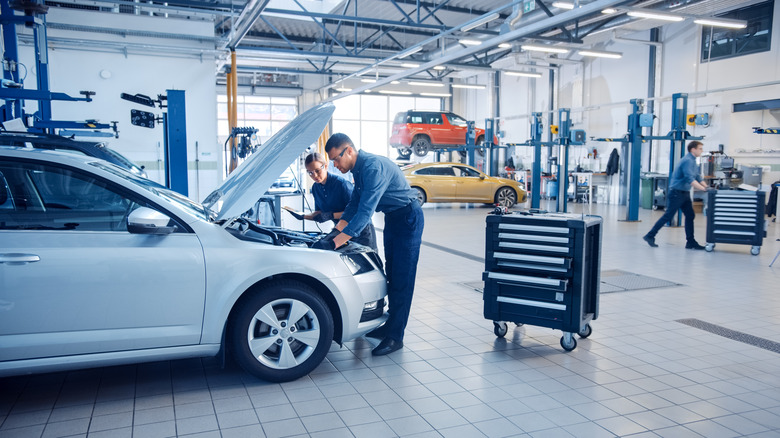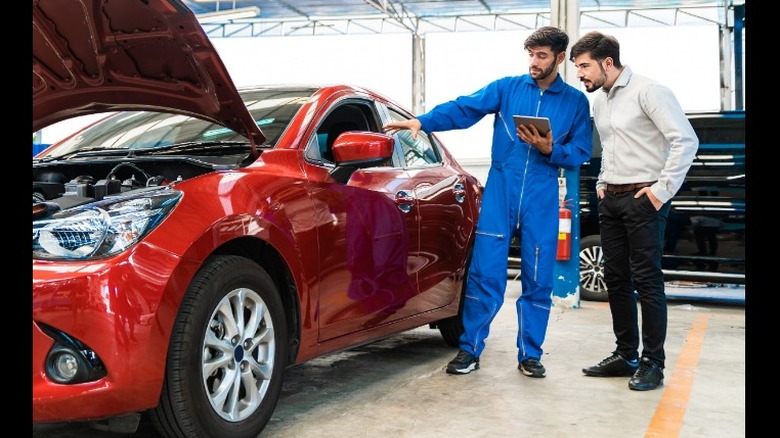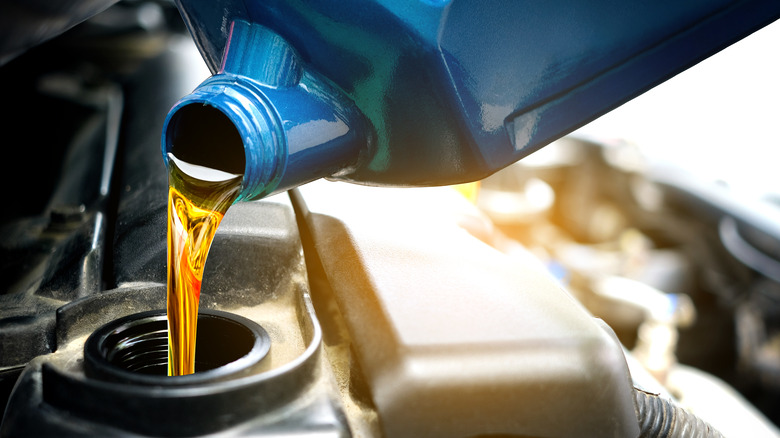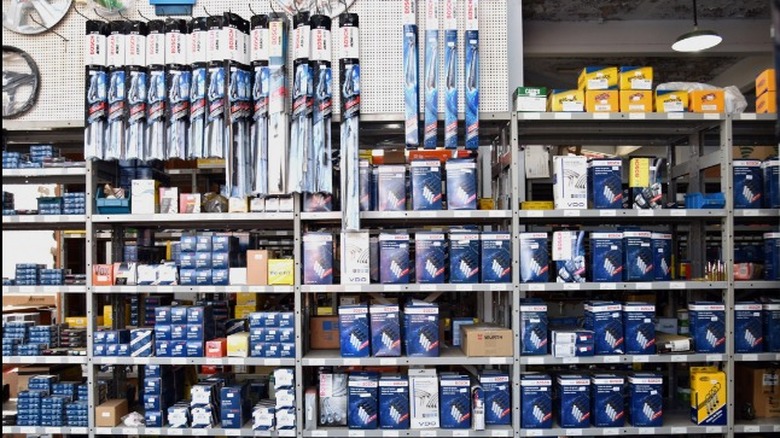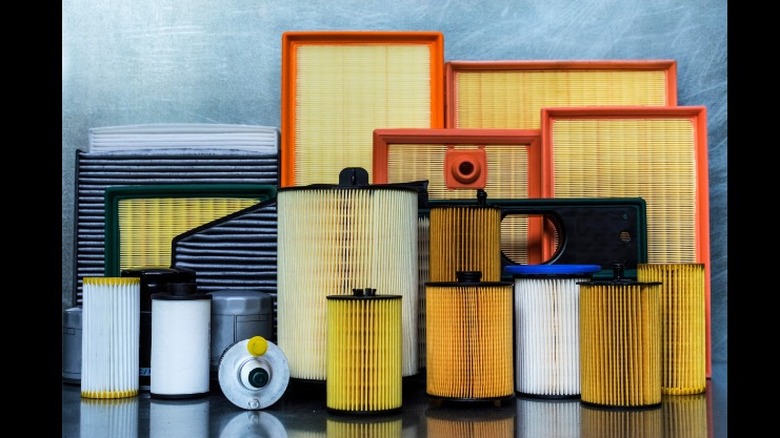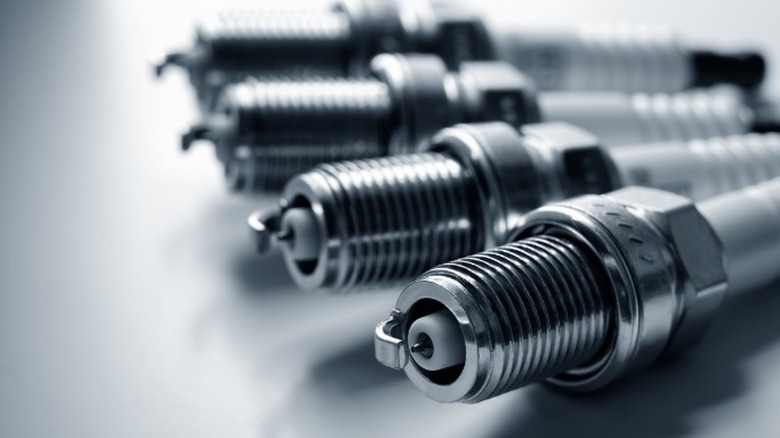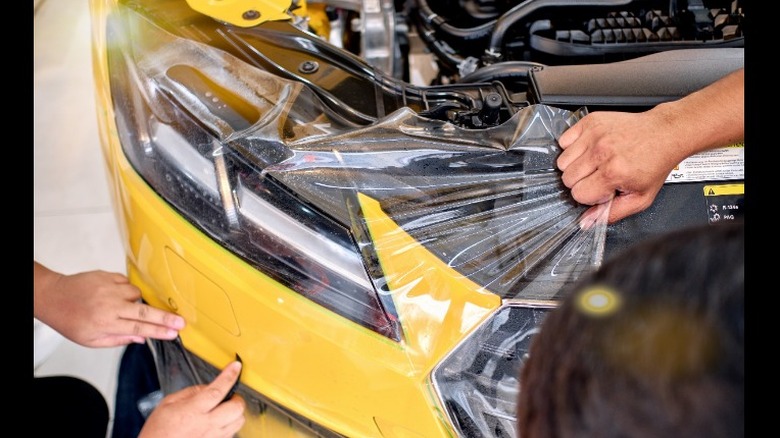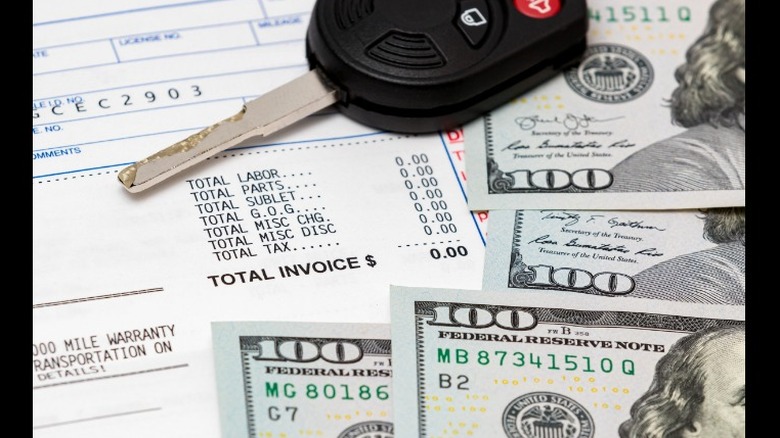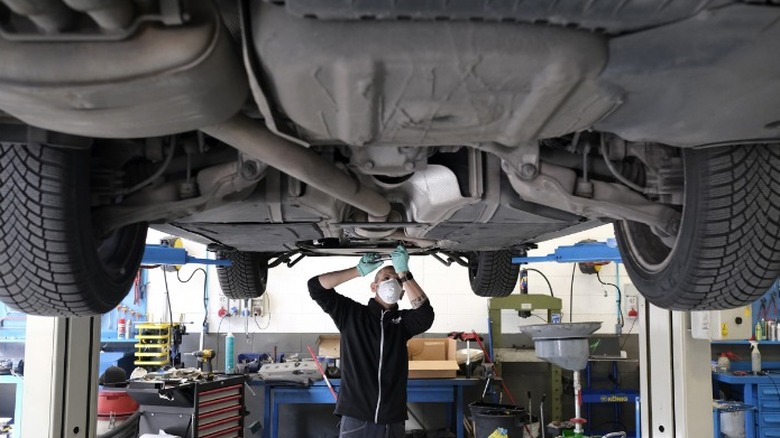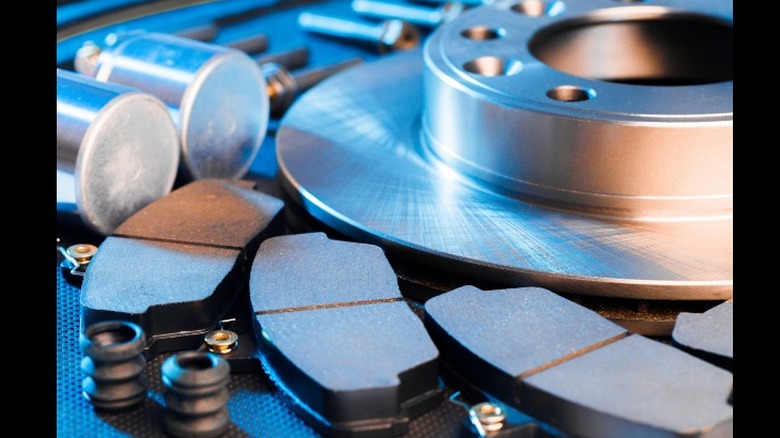Ways Your Car Mechanic Is Overcharging You
Not only do automobiles serve a utilitarian purpose, but they also bring great joy to many drivers. Modern cars are sophisticated in ways Henry Ford and Karl Benz could hardly fathom — Today's automobiles contain multiple computerized control units that adjust a variety of servos and switches based on information from hundreds of sensors. Any one of these dozens of components can go bad at any time as can any of the mechanical parts consisting of gears, levers, cranks, and so forth. Despite modern cars being built to a much higher standard than in the past, they are not perfect. When they break, repairs can get very expensive in a hurry.
I have repaired cars and motorcycles for years, and I am fortunate enough that I can save thousands in repairs by performing them myself. But, as I said, modern cars are sophisticated, and I went to school to learn the trade. Most car owners have not been to a mechanical school and modern shade-tree mechanics are barely qualified to do more than change oil. This leaves so many of us at the mercy of the repair shop — and not all of them are on the level. Corrupt and crooked business owners abound in almost every industry and, sadly, auto shops are rife with scoundrels and there are plenty of products that are a waste of money as well. It is a perpetual challenge to not get ripped off in today's fast-paced society. So make sure you are protected as there remains the possibility that these are ways your car mechanic is overcharging you
Fake repairs
The vast majority of technicians, managers, and owners in automotive repair shops are honest and ethical. You will find no shortage of folks willing to extend a helping hand and look for ways to get you on your way without having to spend more than necessary. However, there are enough scoundrels and crooks in the industry to form an indelible black mark on the lot.
In 2014, ABC News set out to test the integrity of a few shops in the New York area. With an unplugged mass airflow sensor, they found a couple of shops willing to plug it in for no charge and send them on their way. Another shop suggested a $300 replacement part plus labor but offered to repair it himself for just $190. In the end, their hidden camera showed him only cleaning the outside of the engine, while another shop said the check engine light was one because the sensor needed to be cleaned, at a cost of $99.
Another less insidious waste of money is unwittingly having your car diagnosed by what Consumer Reports call a "Parts Replacer." Instead of doing a thorough evaluation to find the root cause of an issue, the technician, often inexperienced, will recommend replacing various parts until it works.
Fluid flushes
Changing fluids such as oil is necessary to keep your engine running for a long time due to the accumulation of carbon from combustion and the minute metal particles that come from natural wear. Failing to keep up with regular oil changes can cause buildup to accumulate throughout the oil passages. If enough buildup exists, it turns into sludge, a nasty, thick oil substance that is tough to get rid of.
If you take your car for an oil change and the shop finds a bit of sludge, they may suggest a flush. If you change your oil religiously and are up-to-date on your maintenance, they are just trying to sell you a service and you almost certainly do not need it. If you have done lax maintenance or don't know the history of your car, these engine flushes may still not be the best choice. According to Motor Biscuit, engine flushes can cause other problems to show up. Engine flushes use an additive that circulates through the engine, freeing up sludge and deposits. This sounds good, but it can cause problems on engines with variable valve timing as deposits can be freed before lodging in a place that can starve oil to other crucial systems. Furthermore, they may not get anything out of the engine and only accomplish draining your wallet. However, the choices available mean some products may be more beneficial than others, so it is wise to consult a professional before making any decision.
Parts markup
It is safe to assume that around 90% of all car repairs require parts replacement. Things break; it's a fact of life. Especially in late-model cars, the parts of a given job can be the majority of the expense. It is reasonable for shops to add a markup to the parts such that the price is in line with retail pricing at the store. These are the things that pay the bills for the business owners.
Parts markups can also be used to take advantage of customers. It depends on what sort of system is employed to run a shop, but shops do not have to disclose anything about how they price parts. Therefore, with your car torn apart and waiting for repair, you may be at the mercy of the shop to pay whatever price they want. Unscrupulous shops may use the highest published retail price from a vendor, which is seldom used, or they may have a system that allows them to arbitrarily set a price way too high. This is especially a problem when opting to install used parts that have no set pricing structure and shops can assess whatever they want in most instances. Jalopnik warns of shops installing the cheapest parts and listing the top-line parts price on your invoice but remember that you, the consumer, do have the internet to research what you are being billed. If you do the proper research, you reduce the chances of getting hosed.
Filters
Filters perform a crucial function in keeping your car running properly. You are frequently asked if you want to change your car's filters because you really do need to do so, but maybe not every time a service advisor recommends it. Cars need to keep dirt out of various systems, and cars of the last 25 to 30 years include filters to keep dirt out of the cabin. Honda even recently developed a filter that kills the COVID-19 virus. Changing the filter with your oil should be assumed, but you don't need a cabin air filter every three months. The higher-ups like personnel to suggest these items because they are relatively affordable and usually have a higher profit margin than most other supplies.
Champion Auto Parts recommends changing your cabin air filter every 12,000 miles, but after as little as 5,000 miles if you drive in polluted areas or on dirt roads often. That may sound excessive, but then again, they sell these parts, so they have an incentive to get you changing filters often. Car and Driver more realistically suggests changing it when the dash vents airflow is reduced, you hear whistling coming from under the dash that changes with air speed settings, or if you notice a foul odor. This tip should do fine or you can follow the owner's manual maintenance schedule. If you are recommended air filter service, just ask to see the old one to verify it is truly dirty enough to replace.
Spark plugs
Spark plug technology has come a long way since the U.S. first put men on the moon. In those days, spark plugs needed changing often to keep cars running well and regular tune-ups were a fact of life for car owners. The biggest change to the technology is advanced metallurgy, the science of metals. The materials used have changed as well as the methods of delivering the electricity to produce a spark.
Older plugs used copper, which conducts electricity the best and performs very well, but it is less durable than modern plugs made from iridium, platinum, and ruthenium. These other metals may not conduct electricity as well, but they are far less prone to wear out over time. Many new cars do not recommend changing plugs for 100,000 miles. It was 20,000 miles in the old days. Consumer Reports says that because of the adoption of fuel injection and electronic ignition, modern spark plugs last much longer and most shops recommending a tune-up are asking you to waste your money. The new rule of thumb is to leave them be unless there is a problem.
Paint protection
Paint Protection is a service generally offered on new cars at the dealer. It may be applied in a dealer service department or by an on-site contractor. These products are popular with new car dealers because they can add huge profits to their sales and, in turn, commissions. The markups on the application of paint sealants can get pretty ridiculous.
According to Motor Biscuit, dealer pricing on paint protection can run as high as $1,000. Furthermore, it is mostly like applying wax. It might be a really good wax, but not for the cost. It is almost pure profit for the dealers. Ceramic coatings are a much better alternative and have a good record of doing what they say. SlashGear's guide to ceramic coatings can tell you how to do it yourself for significant savings over the dealer. If you are buying a car with it already applied, negotiate that price down significantly or walk away from the deal.
Padding the labor
Labor charges are the easiest way for shops to overcharge customers. Most auto shops use a labor guide to determine how much to charge. Manufacturers publish times for specific repair jobs and those are generally used as the basis across the industry.
The guides to labor times are usually provided to shops by industry-only subscription services. This means consumers often have little knowledge of what is an appropriate charge and they are at the mercy of the shop doing the work, giving shops a prime opportunity to cheat you. Unscrupulous service advisors and shop owners may arbitrarily add time to repairs for no other reason than greed, bilking their customers out of their hard-earned money.
Tire Reviews and More published a survey of more than 150 auto mechanics about honesty in their profession with some unfavorable findings. Many in the survey report witnessing other techs overcharging customers and a significant portion of them felt other mechanics would be dishonest, while more than half had witnessed unnecessary services being performed. Furthermore, the services most often used to overcharge customers are brakes, windshield wipers, battery, headlights, and belts, according to DriverSide.com, a car owner advocate website.
Mistakes
People make mistakes. This applies to automotive technicians, especially new ones, but experienced techs also screw up sometimes. The best employers recognize this and choose to cover the expense of whatever goes wrong. Some shops may make their techs pay for their own mistakes, but that really isn't fair to inexperienced ones who need a bit of leeway to screw up and learn. Shops that eat the expense and use it as a learning experience for their employees will keep loyal employees.
The thing that a shop should never do is try to charge the customer for a mistake. The North Carolina Consumers Council warns that some shops may break something and tell the customer it happened before they ever looked at the car. When something gets broken during another repair, it can be presented as a problem not seen in the initial estimate or can be blamed on a part that "was going to fail anyway." An attorney and car collector writing for Hagerty advises that you make sure your repair shops have an "errors and omission" insurance policy. You may have to ask specifically for this information from independent shops. Franchise and chain operations should have this type of policy, but it cannot hurt to ask. If you are confronted with unexpected repairs, you should ask questions and demand a thorough explanation of sudden added expenses on your repair bill or unexplained extra time needed to complete the job. In extreme cases, seek legal counsel.
Counterfeit parts
The issue of shops installing counterfeit parts can fit into two categories — when the parts are installed either unknowingly or knowingly. AA1Car reports that the problem with counterfeit parts is not only huge but growing. They say that these parts are produced overseas to look just like the OEM part, but with as many corners cut as possible and zero research and testing. Some of them are just unusually cheap in price, while others actually copy the OEM labeling to be passed off as genuine dealer parts. This can be dangerous when these parts are used for safety systems such as brakes. One of the biggest concerns is counterfeit airbags. Because they are a high-cost item, the low price of counterfeit airbags is enticing, but when it comes time for them to deploy, that cost savings could turn into a serious injury.
The Auto Training Center advises new technicians to avoid parts with prices too good to be true, as they usually are. Also, check for abnormalities in the branding and packaging, and compare with the original parts to ensure they are equivalent. Furthermore, you should ensure your repair facility obtains parts from trusted suppliers, like one of the national chain auto parts retailers. It is advisable to steer clear of repair facilities that order too many parts from the internet. Do not hesitate to ask what is being installed on your car.
